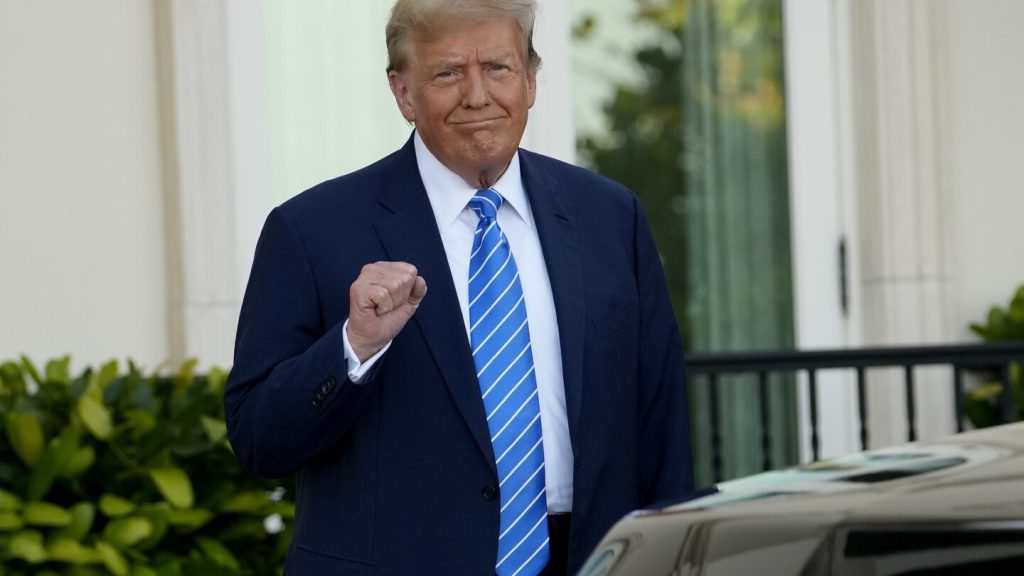Former President Donald Trump’s lawyers are seeking to lift a gag order imposed on him just days before the start of his hush-money criminal trial in New York. The gag order prohibits Trump from making public statements about jurors, witnesses, and others involved in the case, which his lawyers argue is an unconstitutional restriction on his free speech rights. The trial judge, Juan M. Merchan, issued the gag order last month at the request of Manhattan prosecutors who cited Trump’s history of making inflammatory remarks about individuals in his legal cases. The gag order was expanded to include Trump’s family after he made false claims about his daughter, a Democratic political consultant, on social media.
Trump’s lawyers have been appealing various decisions related to his trial, including a request to delay the trial and move it out of Manhattan. They framed their appeal of the gag order as a lawsuit against Judge Merchan under a state law in New York. This tactic has been used by Trump before, including in his civil fraud trial where he tried to delay the case and challenge the imposition of a gag order. The hush-money criminal case against Trump involves allegations of falsifying records to hide payments made to his former lawyer, Michael Cohen, who helped suppress negative stories during his 2016 campaign, including allegations of an extramarital encounter with a porn actor, Stormy Daniels.
Trump has pleaded not guilty to the 34 felony counts of falsifying business records and has denied the encounters with Daniels. His lawyers argue that the payments to Cohen were legitimate legal expenses. Despite numerous attempts to postpone the trial, Trump has been unsuccessful in getting the judge to step aside from the case, with his lawyers alleging bias and conflicts of interest. The expanded gag order, which now includes comments about the judge’s family and the District Attorney Alvin Bragg’s family, has led to Trump criticizing the judge and claiming his First Amendment rights are being violated.
Judge Merchan, who initially resisted imposing a gag order on Trump, cited concerns about ensuring the integrity of the trial and preventing Trump’s rhetoric from disrupting the proceedings. The gag order does not prohibit criticism of the judge or the District Attorney, but Trump has challenged the order as unconstitutional and unfair. Trump has accused the judge of being biased and suggested that his decisions are influenced by his daughter’s professional connections. The judge expanded the gag order after Trump made unfounded claims and accusations against him, triggering a response from Trump on social media.
Trump’s legal challenges to the gag order have similarities to a previous case where he attempted to challenge a gag order in his civil fraud trial but was ultimately unsuccessful. The appeals court in that case restored the gag order, emphasizing the need to follow the normal appeals process rather than suing the judge directly. Trump’s attorneys have expressed their desire to move quickly in challenging the current gag order imposed in his hush-money criminal trial but have faced obstacles in their efforts. Trump continues to maintain his innocence in the case and has been utilizing his platform to voice his objections to the gag order and other legal proceedings.


